🤯 25 Mind-Blowing Medical Facts You Won't Believe Are Real in 2025!
🤯 25 Medical Facts That Will Redefine Healthcare in 2025!
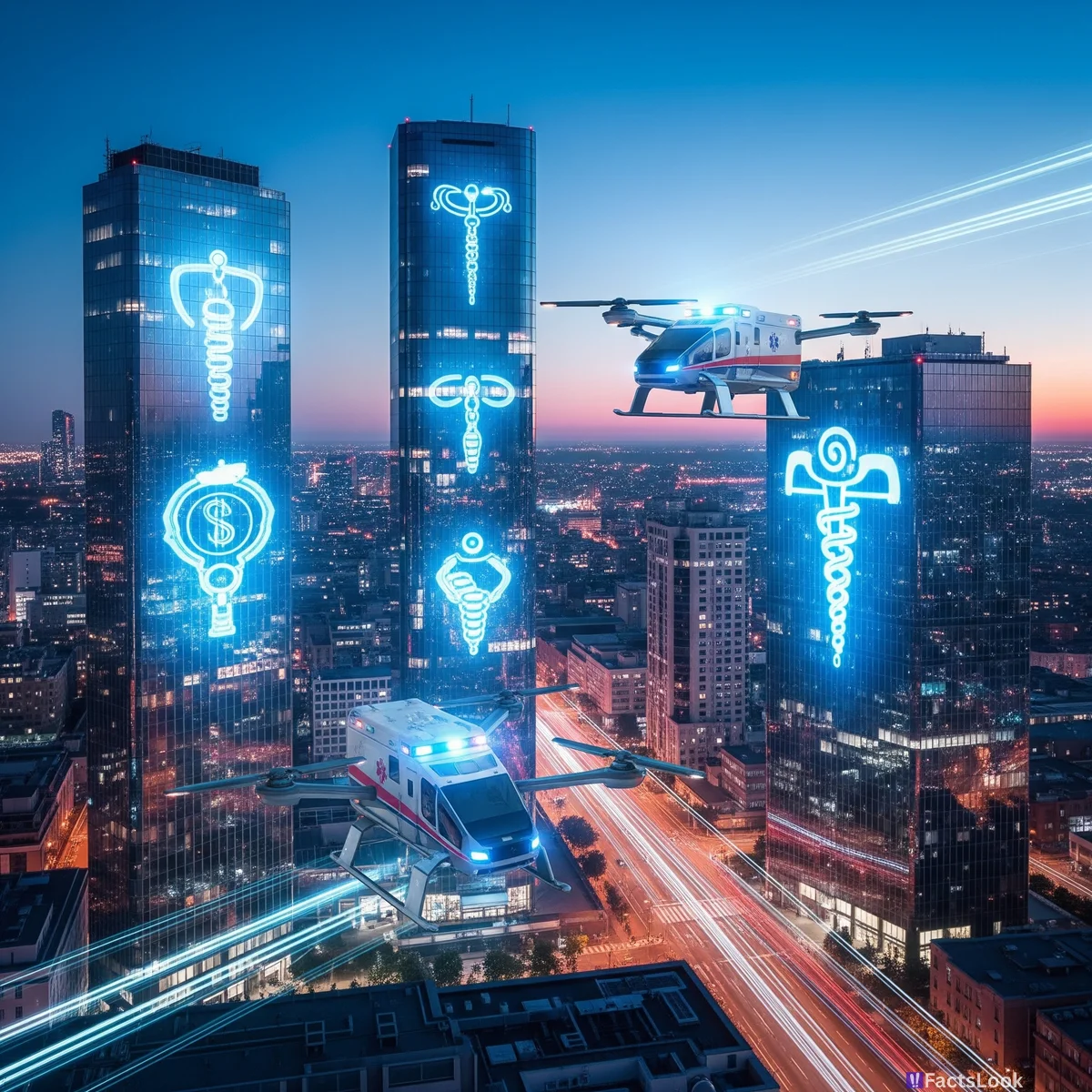
The future of medicine is arriving faster than you think! In 2025, healthcare is poised for a revolution fueled by incredible advancements. Forget what you know about doctor's visits and treatments – we're diving into a world of personalized medicine, AI-powered diagnostics, and breakthroughs you never imagined. Get ready to be amazed by 25 mind-blowing medical facts that will reshape healthcare as we know it. Your health journey is about to get a whole lot more fascinating!
1. AI Doctors Will Be Your First Point of Contact
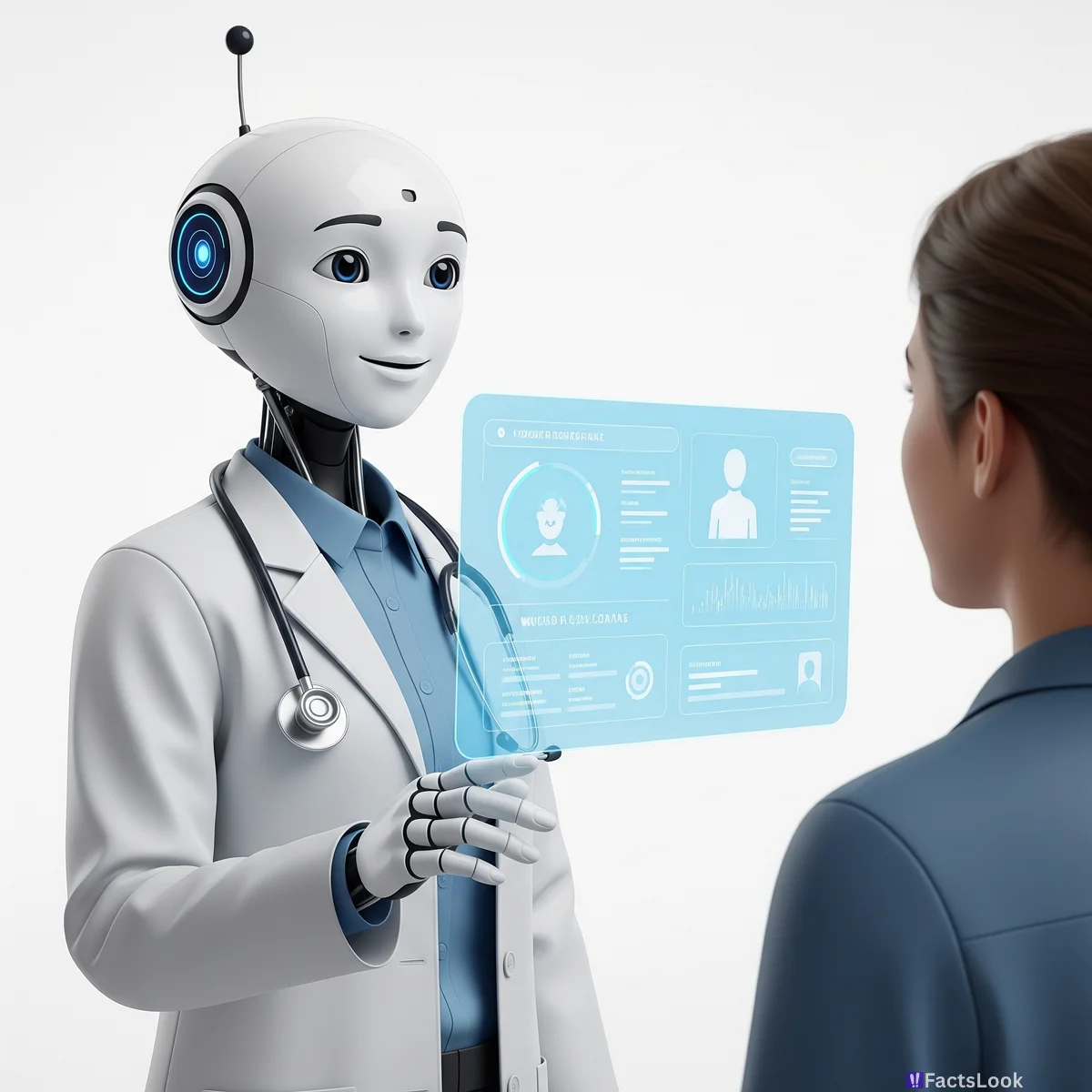
By 2025, expect AI-powered virtual assistants to become your initial healthcare interface. These sophisticated systems, leveraging vast medical knowledge, will assess your symptoms, provide preliminary diagnoses, and guide you to the appropriate care, streamlining the initial steps of your healthcare journey. This is a major shift in healthcare facts.
2. Personalized Cancer Vaccines: Tailored Treatments Emerge
Imagine cancer vaccines designed specifically for *your* tumor. In 2025, personalized cancer vaccines are moving from trials to reality. By analyzing a patient's tumor genetics, scientists are creating vaccines that teach the immune system to precisely target and destroy cancer cells, a revolutionary stride in personalized medicine.
3. Nanobots Will Navigate Your Body for Targeted Drug Delivery
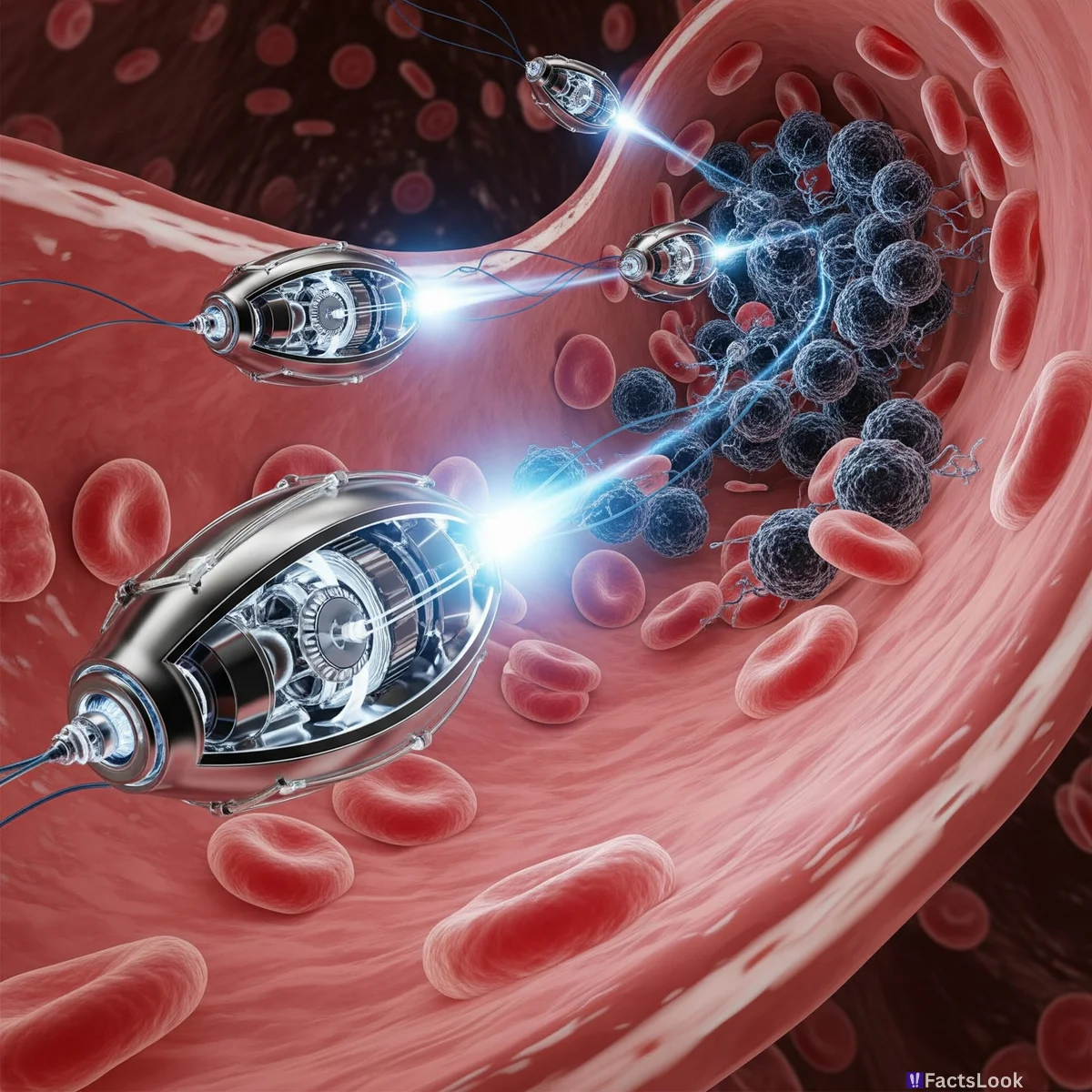
Get ready for microscopic robots inside you! Nanobots, tiny machines, are being developed to navigate the bloodstream and deliver drugs directly to diseased cells. This targeted approach minimizes side effects and maximizes treatment effectiveness, marking a leap in drug delivery and medical facts related to nanotechnology.
4. VR and AR Will Revolutionize Surgery and Therapy
Virtual and augmented reality aren't just for gaming anymore. In 2025, VR and AR are transforming surgery with simulations and real-time guidance. Therapists are also utilizing these technologies for immersive exposure therapy and rehabilitation, creating new dimensions in patient care and medical training. A key healthcare fact for 2025.
5. At-Home Genetic Testing: Know Your Risks Instantly

Unlocking your genetic code will be as easy as ordering online. By 2025, at-home genetic testing kits will become more sophisticated and accessible. Understand your predisposition to diseases, optimize your diet, and personalize your preventive healthcare strategies, all from the comfort of your home. Empowering individuals with healthcare facts.
6. Bioprinting Organs: A Step Closer to Ending Organ Shortages
The dream of printing organs is inching closer to reality. While full organ printing is still years away, 2025 will see significant advancements in bioprinting tissues and simpler organs like skin and blood vessels. This progress offers hope for addressing organ shortages and transforming transplant medicine in the future.
7. Mental Health Tech: Apps and Wearables for Emotional Wellbeing

Mental health is getting a tech upgrade. Expect a surge in AI-powered mental health apps and wearables in 2025. These tools will offer personalized therapy, monitor stress levels, and provide real-time support, making mental healthcare more accessible and proactive. A crucial healthcare fact in the digital age.
8. Wearable Health Monitors Will Predict Illness Before Symptoms
Your smartwatch will become a predictive health powerhouse. By 2025, wearable sensors will be capable of continuously monitoring vital signs and subtle physiological changes to predict illnesses *before* symptoms even appear. Early warnings will enable proactive interventions and personalized preventive care, revolutionizing personal health management.
9. Microbiome Medicine: Harnessing Gut Bacteria for Health

Your gut bacteria are more powerful than you think. By 2025, microbiome research will unlock new therapies based on manipulating gut bacteria. Treatments for digestive disorders, autoimmune diseases, and even mental health conditions will be tailored to optimize your unique microbial ecosystem. A fascinating area of medical facts.
10. CRISPR Gene Editing: Targeted Therapies for Genetic Diseases
CRISPR gene editing is moving beyond the lab. In 2025, expect to see more clinical applications of CRISPR for treating genetic diseases. Targeted gene editing offers the potential to correct faulty genes responsible for conditions like cystic fibrosis and sickle cell anemia, offering hope for cures and transforming genetic medicine.
11. Telemedicine Beyond Video Calls: Remote Diagnostics and Procedures
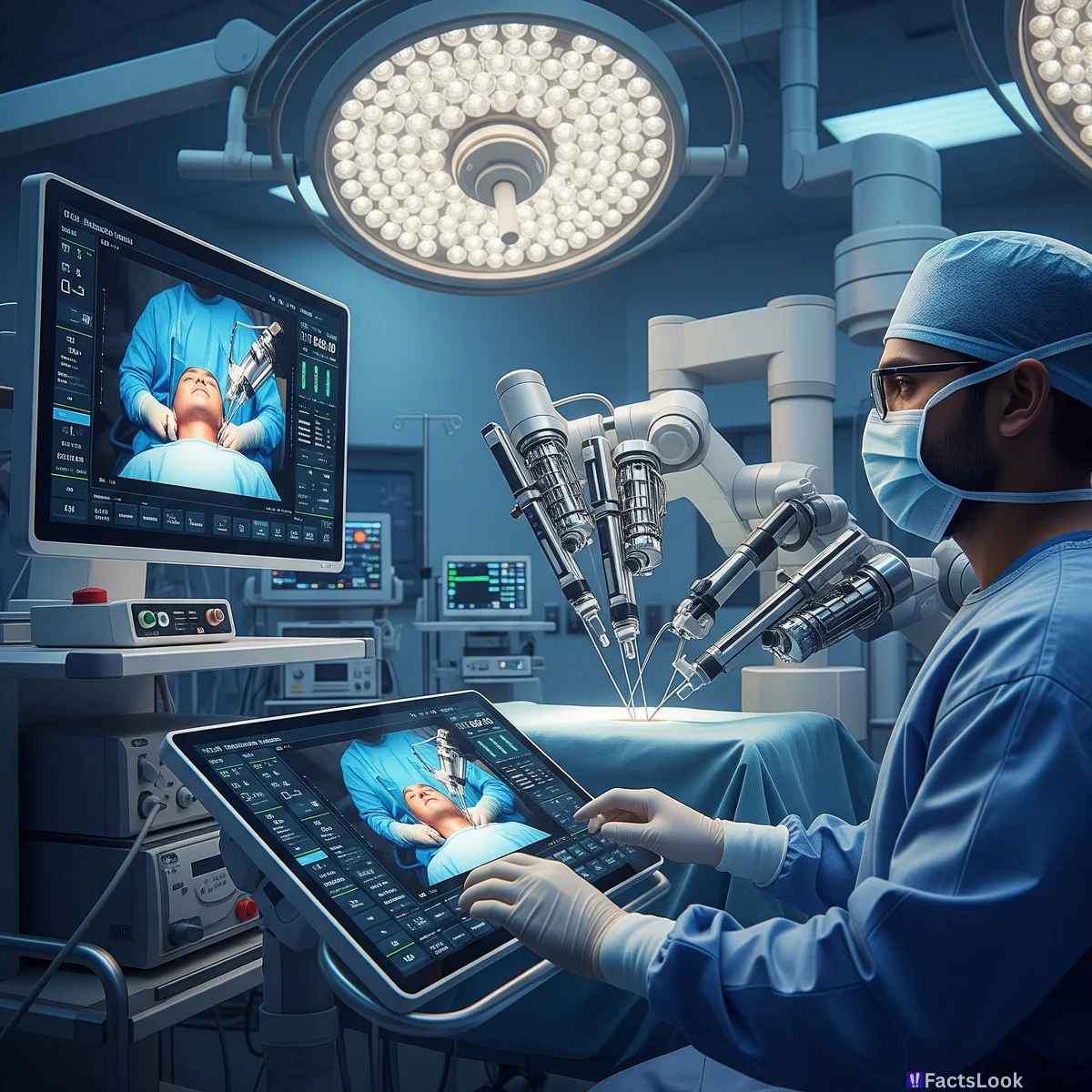
Telemedicine is evolving beyond simple video consultations. By 2025, remote diagnostics using advanced sensors and robotic assistance will become more common. Imagine specialists guiding procedures from afar, expanding access to expert care, especially in underserved areas. A game-changer in healthcare facts and accessibility.
12. Preventive Medicine Takes Center Stage: Proactive Health Strategies
Healthcare is shifting from reactive treatment to proactive prevention. In 2025, expect a greater emphasis on personalized preventive medicine. Utilizing genetic data, lifestyle analysis, and predictive analytics, healthcare will focus on keeping you healthy *before* illness strikes, reducing healthcare burdens and improving overall wellbeing.
13. Aging Research Breakthroughs: Extending Healthspan, Not Just Lifespan

The focus of aging research is shifting towards extending 'healthspan' - the years lived in good health. By 2025, breakthroughs in understanding aging processes will lead to interventions aimed at delaying age-related diseases and promoting vitality for longer, improving the quality of later life. Exciting medical facts for longevity.
14. Health Data Privacy and Security: Protecting Your Digital Health Footprint
As healthcare becomes increasingly digital, data privacy is paramount. In 2025, expect stricter regulations and advanced security measures to protect your sensitive health data. Blockchain and homomorphic encryption are among the technologies being explored to ensure secure and private healthcare in the digital age. A critical healthcare fact for the future.
15. New Antibiotics and Antimicrobial Resistance: Winning the War on Superbugs

The fight against antibiotic-resistant bacteria is intensifying. By 2025, expect the development of novel antibiotics and alternative antimicrobial therapies. These innovations are crucial to combatting superbugs and ensuring effective treatment for bacterial infections in the future. A vital area of medical advancement.
16. 3D-Printed Prosthetics and Implants: Customized and Affordable Solutions
3D printing is transforming prosthetics and implants. In 2025, expect more affordable and highly customized prosthetics and implants created using 3D printing technology. This will improve accessibility and personalization of medical devices, enhancing the quality of life for patients needing replacements or support.
17. AI-Powered Drug Discovery: Accelerating the Search for New Medicines
Drug discovery is a lengthy and expensive process, but AI is changing that. By 2025, AI algorithms will be heavily utilized to accelerate drug discovery. AI can analyze vast datasets to identify potential drug candidates and predict their effectiveness, significantly speeding up the development of new treatments. A powerful medical fact about technology.
18. Digital Therapeutics: Apps and Software as Prescriptions

Forget just pills – your doctor might prescribe an app. Digital therapeutics, software-based treatments, are gaining traction. By 2025, expect more digital therapeutics approved for conditions like diabetes, anxiety, and ADHD. These apps offer personalized and accessible treatment options, expanding the spectrum of healthcare interventions.
19. Focus on Health Equity and Access: Bridging Healthcare Gaps
Addressing healthcare disparities will be a major focus in 2025. Expect initiatives aimed at improving health equity and access for underserved populations. Telemedicine, mobile health clinics, and community-based programs will play crucial roles in bridging healthcare gaps and ensuring everyone has access to quality care. A socially important healthcare fact.
20. Robotics in Surgery: Precision and Minimally Invasive Procedures
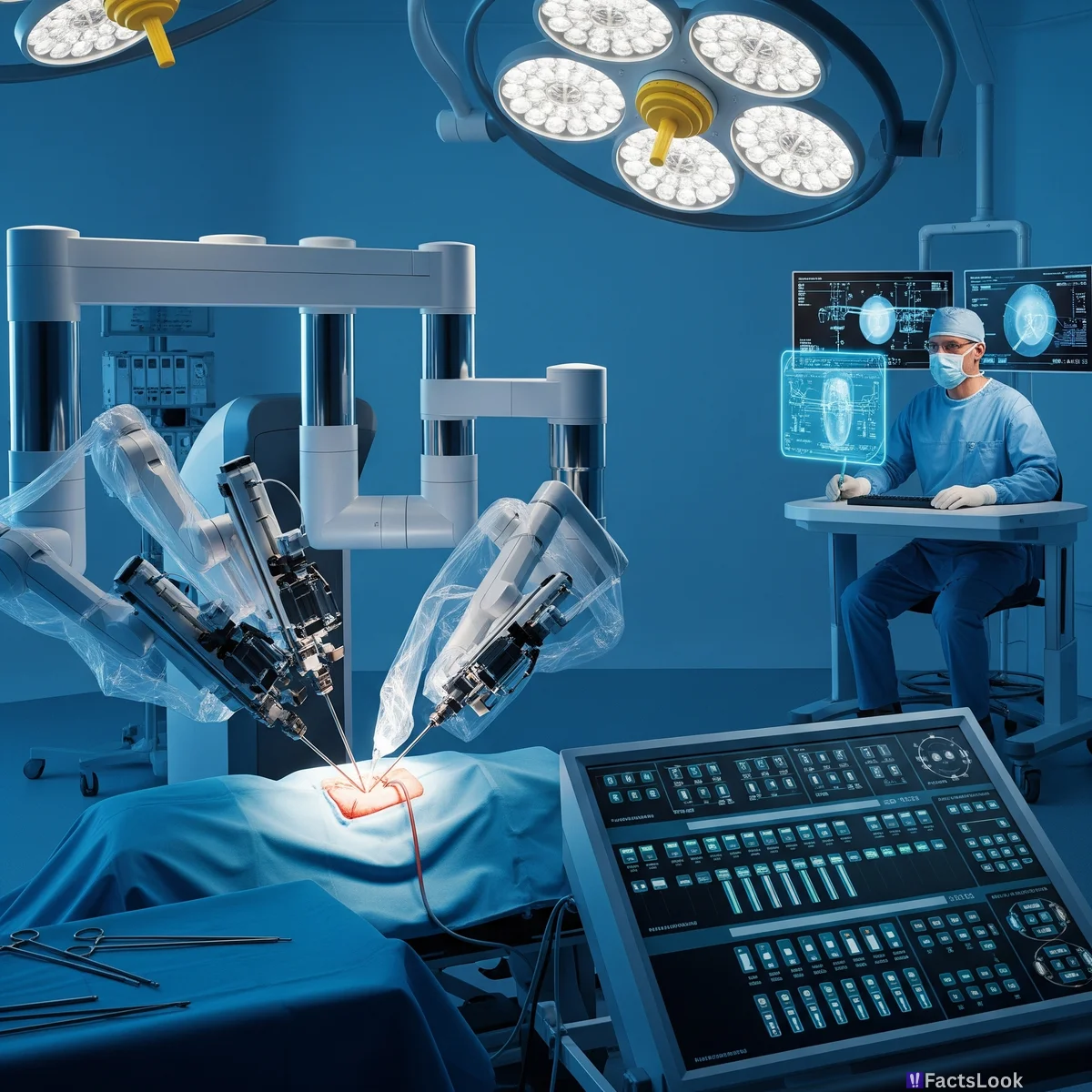
Surgical robots are becoming increasingly sophisticated. In 2025, expect wider adoption of robotic surgery. Robots offer enhanced precision, minimally invasive techniques, and improved surgical outcomes. From complex surgeries to routine procedures, robotics are transforming the surgical landscape. A key advancement in medicine 2025.
21. Smart Pills: Monitoring Medication Adherence from Within
Imagine pills that can tell your doctor if you've taken them. Smart pills, equipped with ingestible sensors, are being developed to monitor medication adherence. By 2025, these technologies could improve treatment outcomes by ensuring patients take their medications as prescribed, especially for chronic conditions. A novel approach to healthcare.
22. Brain-Computer Interfaces (BCIs) for Medical Use: Restoring Function and Communication
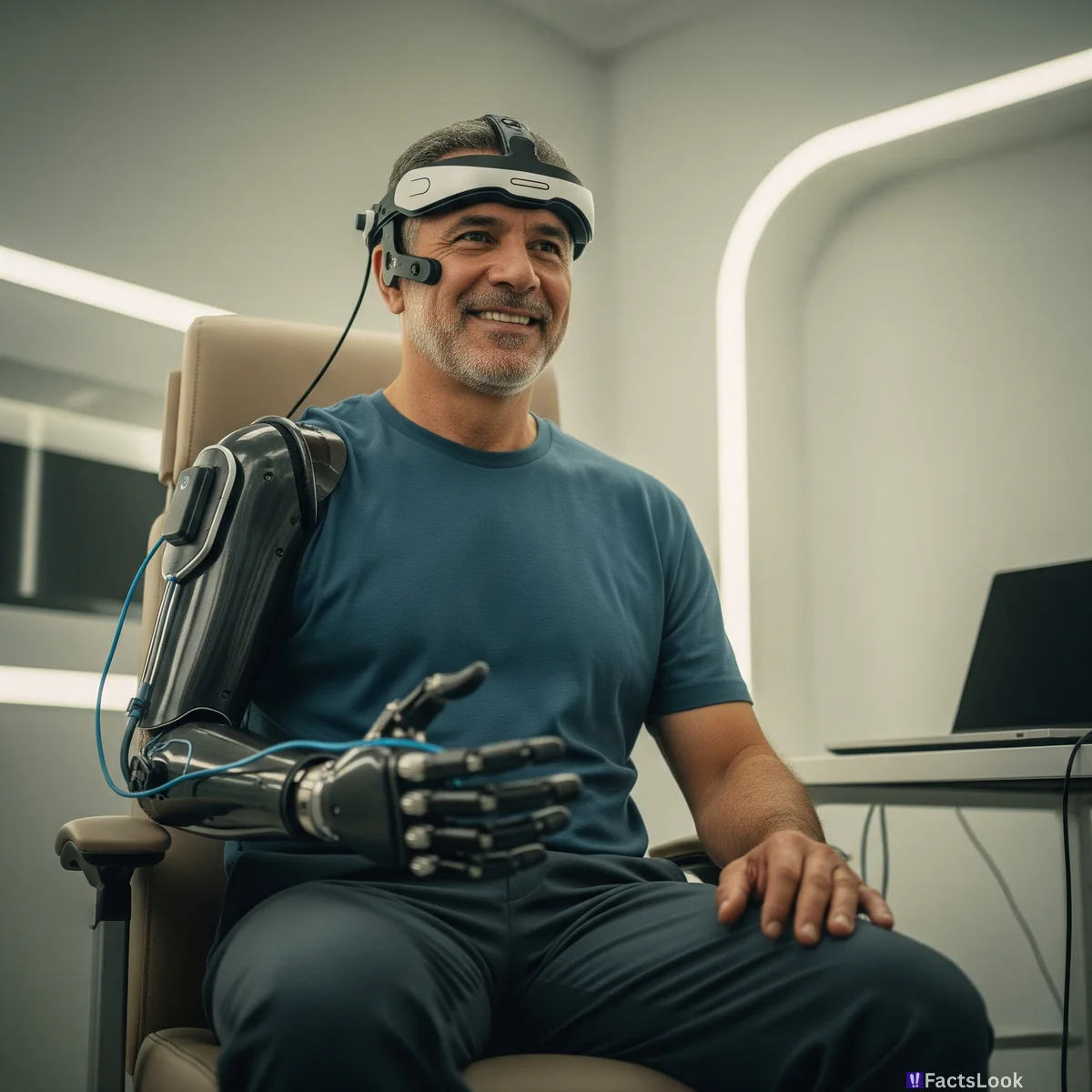
Brain-computer interfaces are advancing beyond research. In 2025, expect BCIs to play a greater role in medical treatments, particularly for paralysis and neurological disorders. BCIs can restore lost functions and enable communication for individuals with severe disabilities, opening new frontiers in neuro-rehabilitation. Groundbreaking medical facts for neurotech.
23. Liquid Biopsies: Early Cancer Detection Through Blood Tests
Say goodbye to invasive biopsies, at least for some cancers. Liquid biopsies, blood tests that detect cancer DNA, are becoming more refined. By 2025, liquid biopsies will be increasingly used for early cancer detection, monitoring treatment response, and detecting recurrence, offering a less invasive approach to cancer management. A major improvement in diagnostics.
24. Personalized Nutrition: Diet Plans Based on Your Genes

One-size-fits-all diets are becoming obsolete. In 2025, expect personalized nutrition plans based on your genetic makeup. Genetic testing can reveal how your body processes nutrients, allowing for tailored dietary recommendations to optimize health and prevent diet-related diseases. A customized approach to wellness and medical facts about diet.
25. Gamification in Health and Fitness: Making Wellness Engaging and Fun
Staying healthy can be fun! Gamification is being integrated into health and fitness apps. By 2025, expect more apps using game-like elements, rewards, and challenges to motivate users to adopt healthy habits, track progress, and engage with their wellbeing in an enjoyable way. A playful approach to healthcare and wellness.
Comments
Loading comments...